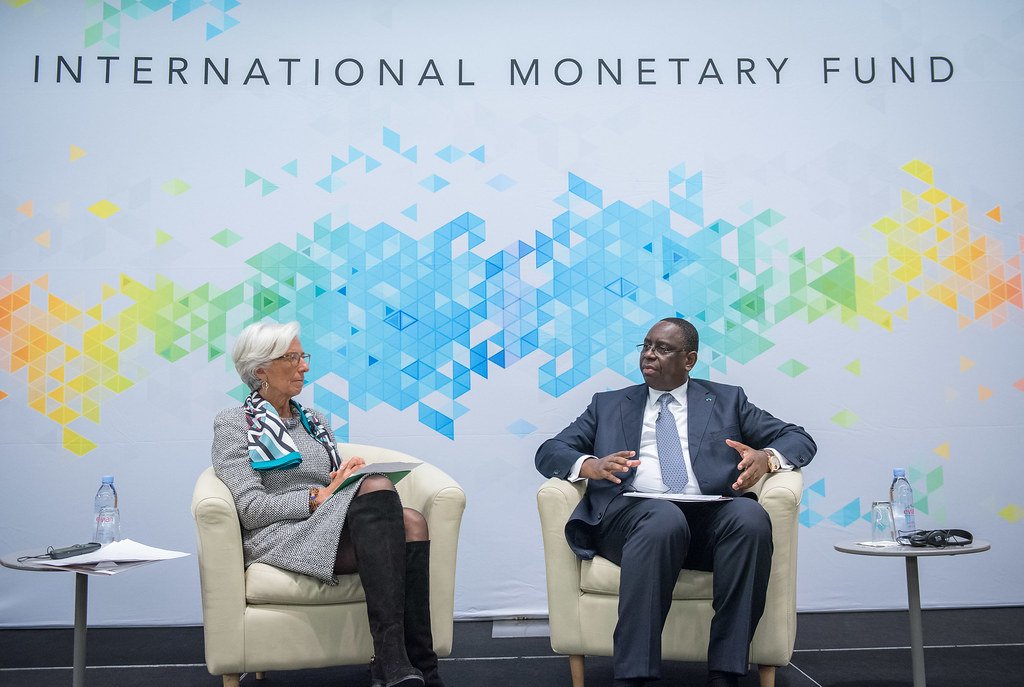The intricacies of international finance have long been dominated by the interplay of global superpowers. In recent discussions about the International Monetary Fund’s (IMF) shareholding formula, a novel perspective has emerged from Nancy Lee, an esteemed former U.S. Treasury development expert. Lee suggests that the U.S. should consider linking China’s support for debt restructuring in impoverished and middle-income nations to its ambitions within the IMF.
Understanding the IMF’s Role
Before delving into the proposal, it’s worth taking a moment to understand the IMF’s function in global finance. The IMF is essentially a crisis lender. Its aim is to stabilize international monetary systems by offering financial support to countries in economic distress. Member countries contribute funds to the IMF, which are then allocated to countries in need. This aid often comes with stipulations designed to ensure the receiving country’s return to economic stability.
Shareholding in the IMF
IMF member countries possess shares or quotas, which are central to the Fund’s financial and governance structure. These quotas reflect the country’s relative size in the global economy. Naturally, bigger economies like the U.S., China, and the European Union have larger quotas and, by extension, more sway in the IMF’s decision-making processes. Over time, as global economic dynamics shift, there’s a need to reassess these quotas.
China’s Growing Aspirations in the IMF
In recent times, emerging market nations, notably China, India, and Brazil, have sought a more substantial voice in the IMF’s governance. Their economies have grown significantly since the last quota revision in 2010. Consequently, they desire more voting power, commensurate with their increased economic prowess. This aspiration will be a topic of discussion at the IMF’s annual meetings scheduled in Morocco.
U.S. Stance on IMF Shareholding
While these emerging nations are looking to reshape the IMF’s quota distribution, the U.S. has a slightly different perspective. They are advocating for member countries to increase their contributions to the IMF, amplifying its lending capacity. However, they wish for the existing U.S.-centric shareholding structure to remain intact.
The Debt Restructuring Dilemma
One of the major challenges currently faced by many poor and middle-income nations is the unsustainable burden of debt. Given the economic ramifications of unforeseen global events like pandemics or natural disasters, these countries find it increasingly hard to service their debt.
For these countries, debt restructuring is a lifeline. It involves revising the terms of the debt, making it more manageable for the debtor nation. However, this often implies that the creditors might have to accept reduced returns or extend the repayment period.
China’s Position on Debt Restructuring
China, now the world’s largest sovereign creditor, finds itself at the heart of the debt relief discussions. The U.S. Treasury Secretary, Janet Yellen, has pointed out that China often hinders the process of debt relief. Beijing’s stance, as echoed by various U.S. officials, seems to be that they would consider accepting losses on loans only if private-sector creditors and multilateral development banks follow suit.
Nancy Lee’s Proposition
Against this backdrop, Nancy Lee’s proposition becomes particularly significant. Working at the Center for Global Development, Lee asserts that any nation vying for a larger IMF quota should also contribute to aiding countries in their quest for sustainable debt. In essence, a country’s ambition to have greater influence in the IMF should align with the core objectives of the institution.
Lee’s perspective is grounded in logic: “If a country wants a larger share in the governance of the IMF, it should also aim to advance what the IMF goals are, which is helping countries finance growth paths and in a way that’s sustainable,” she elaborated. If a nation doesn’t participate in this overarching agenda, its plea for a bigger quota appears unwarranted.
Support for Lee’s Views
Lee’s sentiments resonate with those expressed by the U.S. Treasury’s top international official, Jay Shambaugh. In a recent discourse, Shambaugh emphasized the importance of all member nations, especially those aiming for a larger share, to respect the principles and norms of the IMF. This, he mentioned, includes championing causes like debt relief and ensuring exchange rate transparency.
Shambaugh subtly hinted at China, emphasizing the need for enhanced exchange rate transparency, which has been a recurrent critique of Beijing by the U.S. Treasury.
Final Thoughts
The intertwining of IMF quotas and debt restructuring brings forth a complex, yet crucial aspect of global finance. As emerging markets assert their influence and developed nations like the U.S. attempt to retain their dominance, the true essence of institutions like the IMF – to stabilize global economies and aid distressed nations – shouldn’t be lost.
China’s growing economic stature undeniably warrants a more significant voice in global financial institutions. However, with increased power comes increased responsibility. Should China’s aspirations within the IMF be linked to its stance
Read More:
